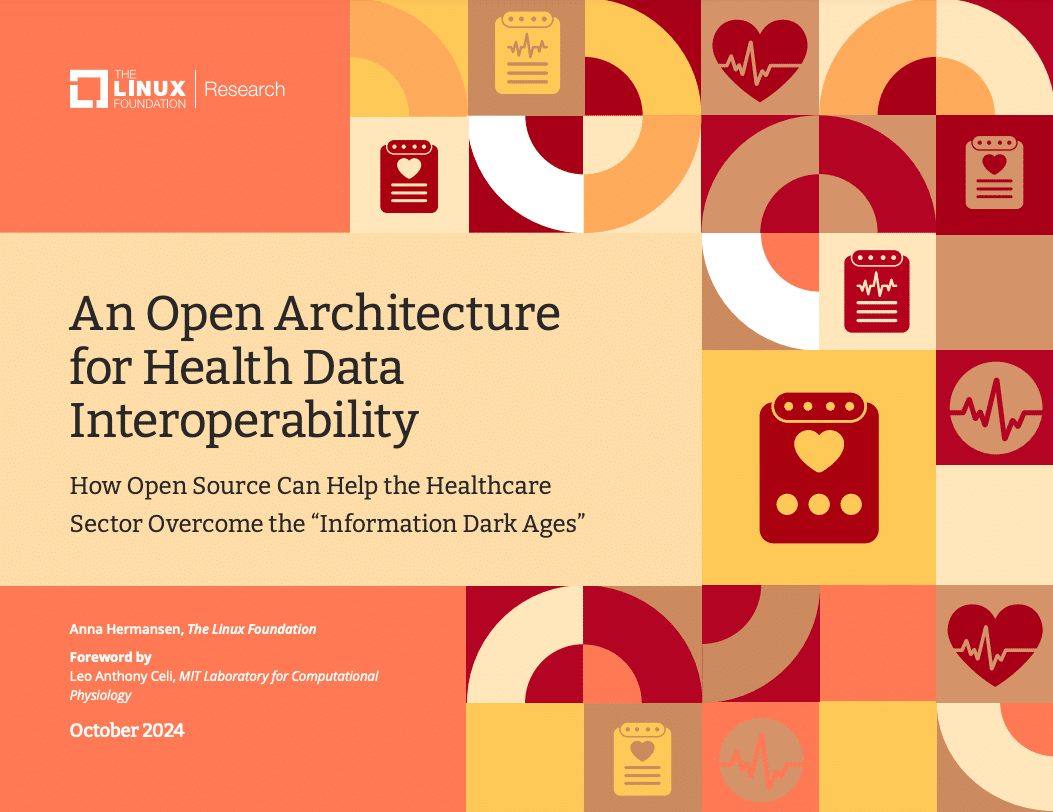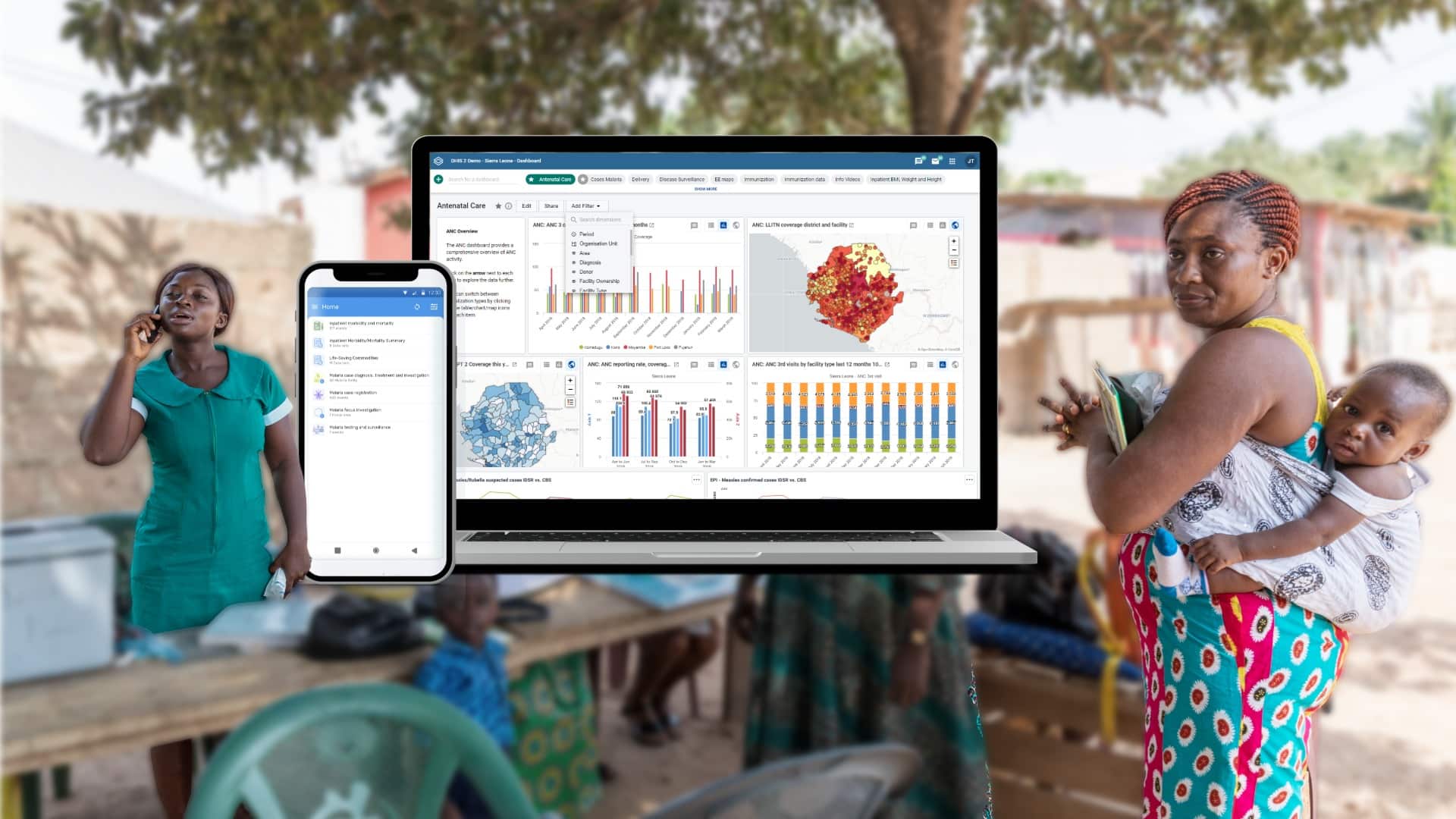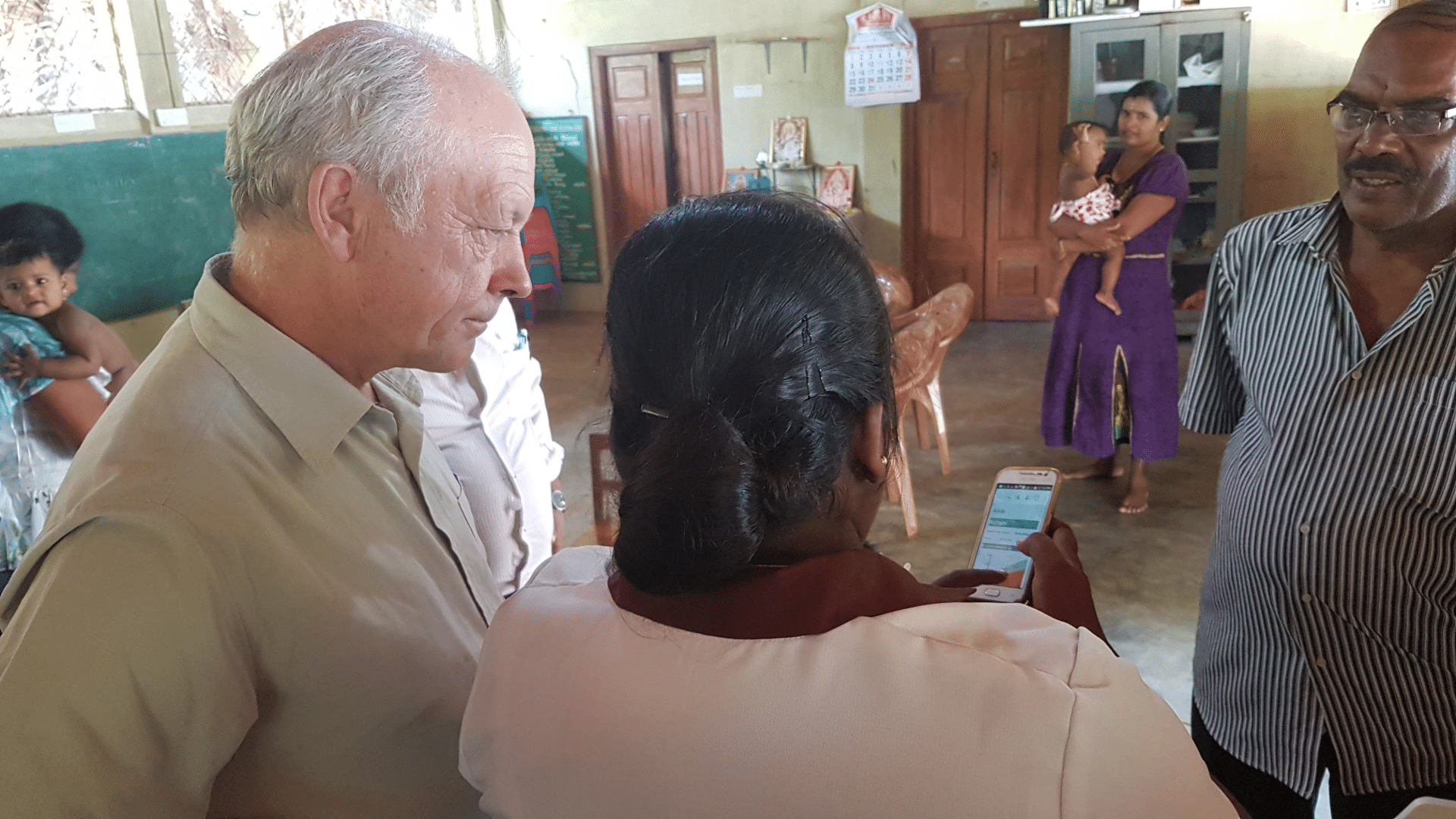The DHIS2 Annual Conference takes place from 15-18 June 2026! Learn more

DHIS2 highlighted in new research report on the potential of open source in health data infrastructure
The new paper by the Linux Foundation, “An Open Architecture for Health Data Interoperability,” cites DHIS2 as an example of an open-source solution that is widely used at scale
In October 2024, the Linux Foundation published the research report, “An Open Architecture for Health Data Interoperability: How Open Source Can Help the Healthcare Sector Overcome the ‘Information Dark Ages.'” In this report, the authors review the adoption, challenges, and potential of open-source solutions for health data, and argue that open source can help the health sector overcome critical information challenges, such as widespread lack of interoperability between systems.
DHIS2 is presented in the report as a leading example of a widely adopted open-source platform for health data management, used in more than 100 countries around the world. The scale and sustainability of DHIS2 can help counter some of the doubts about open source that respondents expressed to the researchers behind this report, such as that “Open source lacks support compared with proprietary,” and that “Open source is only used for smaller projects.”
The report lists several benefits of using open-source solutions for health data, including reducing costs, de-risking innovation, and removing vendor lock-in. They also highlight that open-source projects are trustworthy due to their open and transparent nature, and that they can benefit from an engaged community that supports and innovates with open-source solutions over time.
A commitment to open source is one of the foundational HISP values underlying the development and implementation of DHIS2. We are pleased to see DHIS2 featured in this report, and support the authors’ argument that “there are strong philosophical, economic, and technological reasons why open source should be considered when looking for solutions,” and their call for an open architecture for greater interoperability, an area that HISP actively supports through our own work on DHIS2 interoperability and integration, and our continued engagement in OpenHIE.


